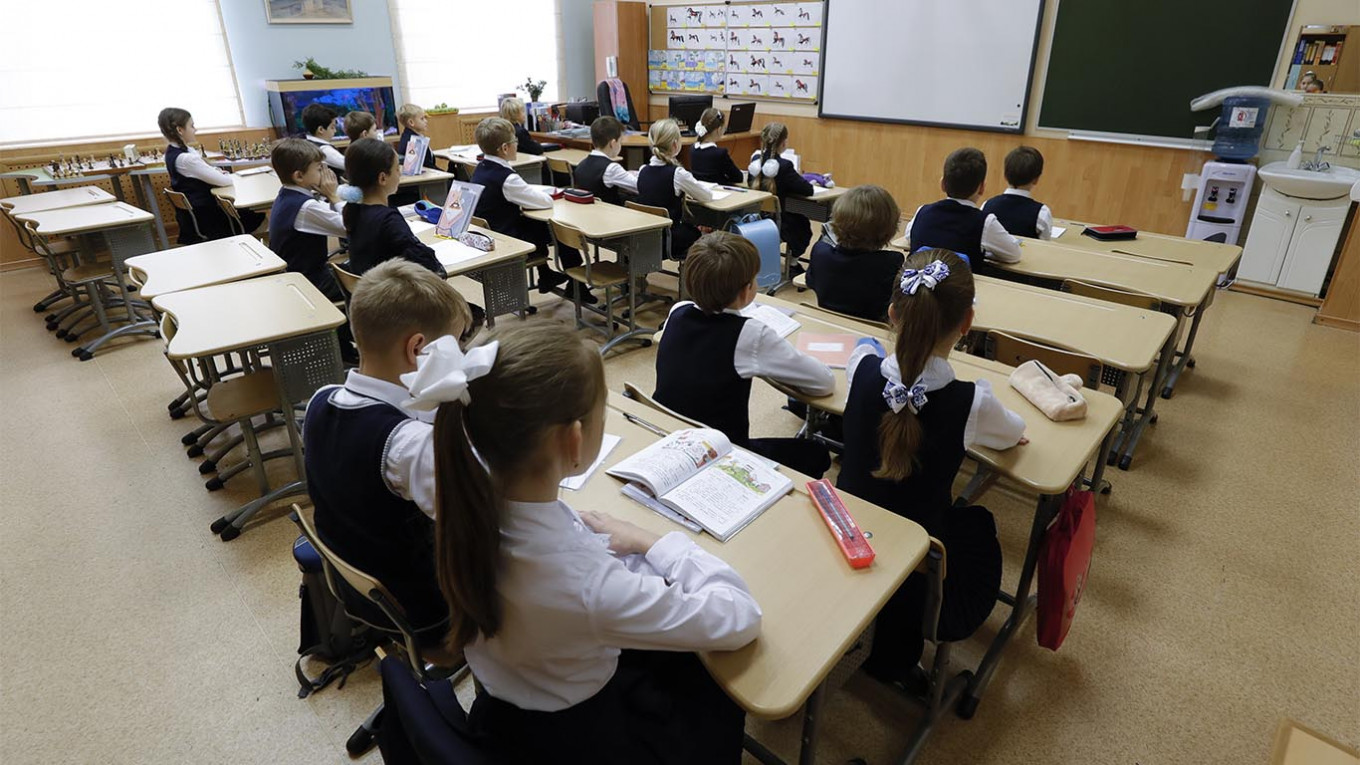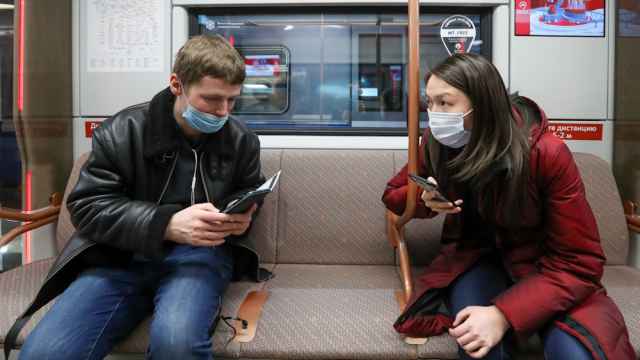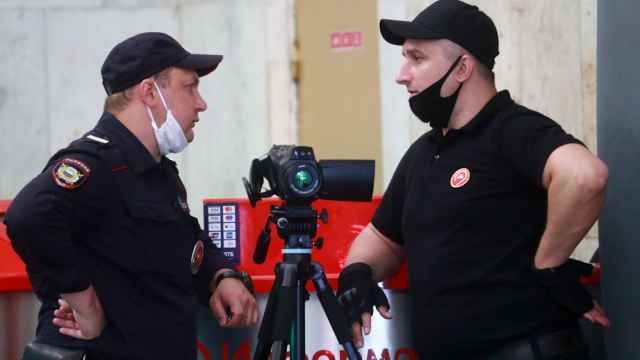More than 43,000 Russian schools will be equipped with facial recognition cameras ominously named “Orwell,” the Vedomosti business daily reported Tuesday.
The state technology firm Rusnano’s Orwell platform is described as a image-recognition monitoring system that uses computer vision algorithms. It will be integrated with face recognition developed by NTechLab, a subsidiary of Russian President Vladimir Putin’s close associate Sergei Chemezov’s Rostec conglomerate.
The contracts signed between another Rostec subsidiary and regional education departments total 2 billion rubles ($25.4 million), Vedomosti reported.
The technology will ensure children’s safety by monitoring their movements and identifying outsiders on the premises, said Yevgeny Lapshev, a spokesman for Rusnano’s subsidiary Elvees Neotech.
Lapshev assured that the school databases would be stored locally to avoid leaks and stressed that parents and children won’t be added without their consent.
In the future, the surveillance technology could be used to take attendance, monitor teachers’ working hours and be used for distance learning, an NTechLab spokesperson told Vedomosti.
So far, Vedomosti reports that “Orwell” has been installed at more than 1,608 schools in 12 Russian regions.
Elvees Neotech, which developed the Orwell surveillance platform, provided more than 28,000 cameras at 10,000 rubles ($140) per unit for the pilot project.
A single school needs around 20 cameras to provide security for the entire premises.
Vedomosti did not report when the rest of the schools would be fitted with the surveillance systems.
The $25.4 million project is part of Putin’s ambitious “digitalization” program that envisions spending $25 billion on developing Russia’s digital economy for it to make up 5.1% of its GDP.
NTechLab has already deployed facial recognition technology in Moscow to identify criminal suspects across a network of almost 200,000 surveillance cameras. Critics have accused the technology of violating citizens' privacy and have staged protests against the system by painting their faces.
A Message from The Moscow Times:
Dear readers,
We are facing unprecedented challenges. Russia's Prosecutor General's Office has designated The Moscow Times as an "undesirable" organization, criminalizing our work and putting our staff at risk of prosecution. This follows our earlier unjust labeling as a "foreign agent."
These actions are direct attempts to silence independent journalism in Russia. The authorities claim our work "discredits the decisions of the Russian leadership." We see things differently: we strive to provide accurate, unbiased reporting on Russia.
We, the journalists of The Moscow Times, refuse to be silenced. But to continue our work, we need your help.
Your support, no matter how small, makes a world of difference. If you can, please support us monthly starting from just $2. It's quick to set up, and every contribution makes a significant impact.
By supporting The Moscow Times, you're defending open, independent journalism in the face of repression. Thank you for standing with us.
Remind me later.






